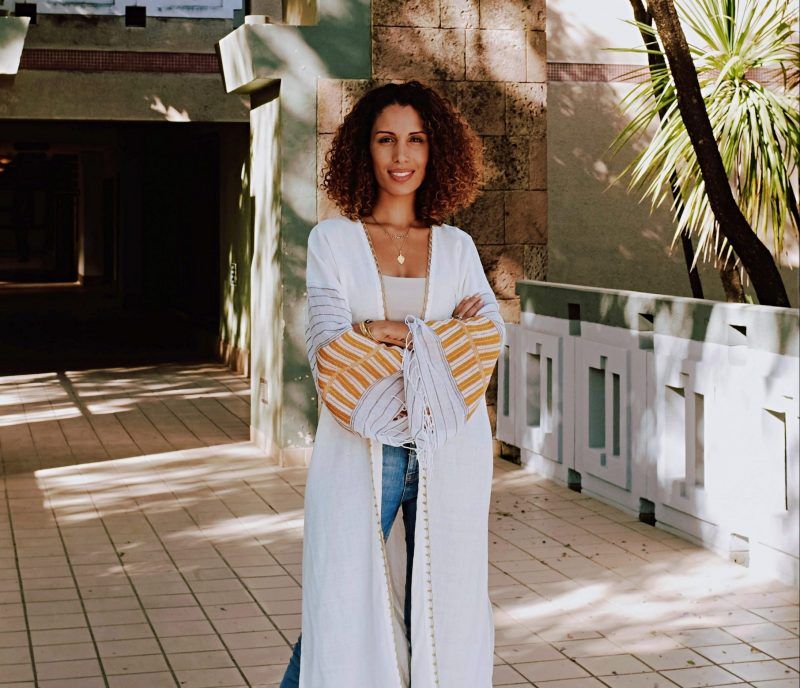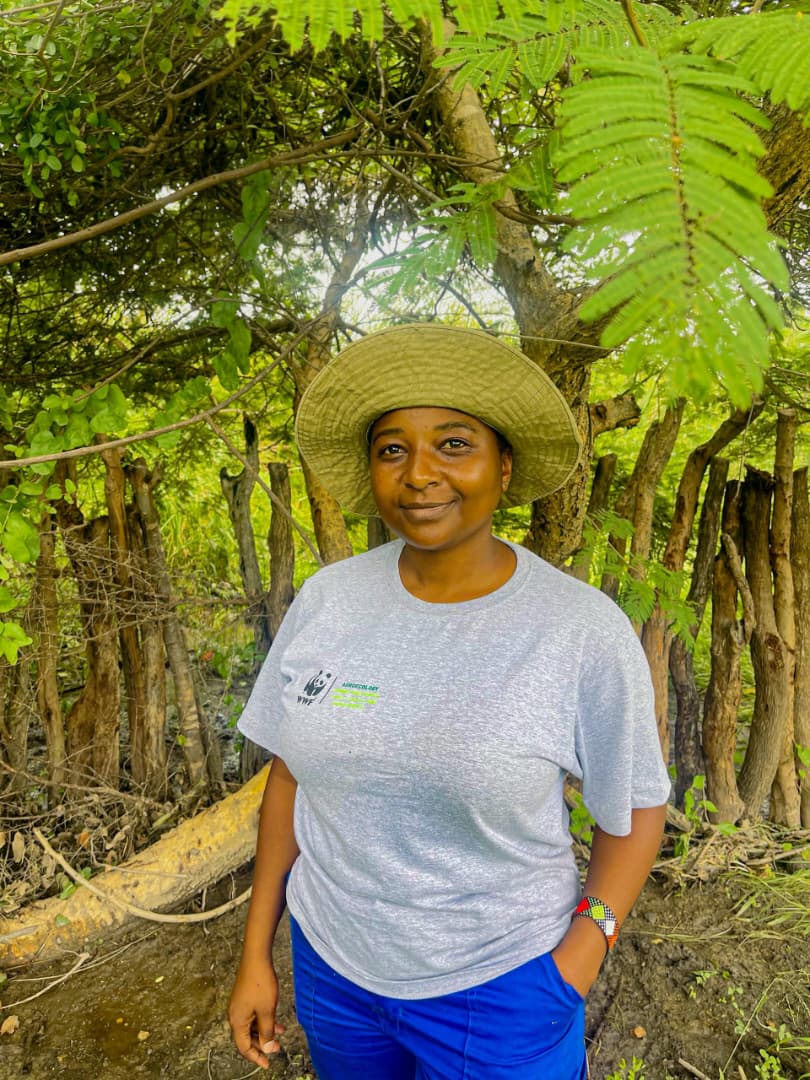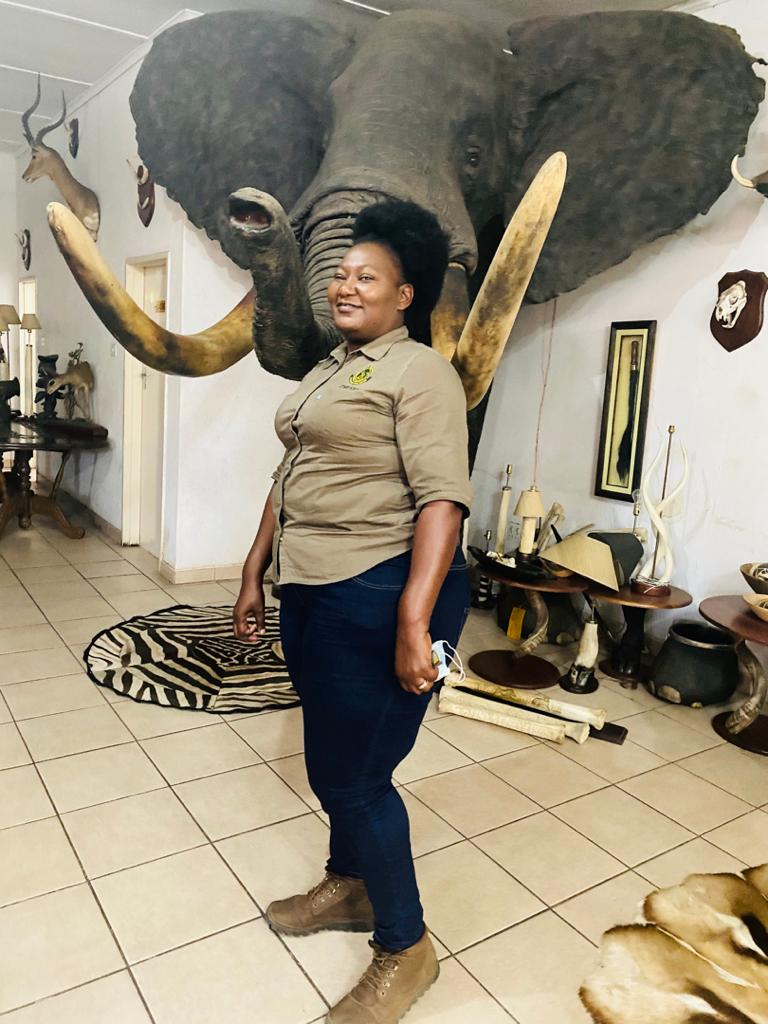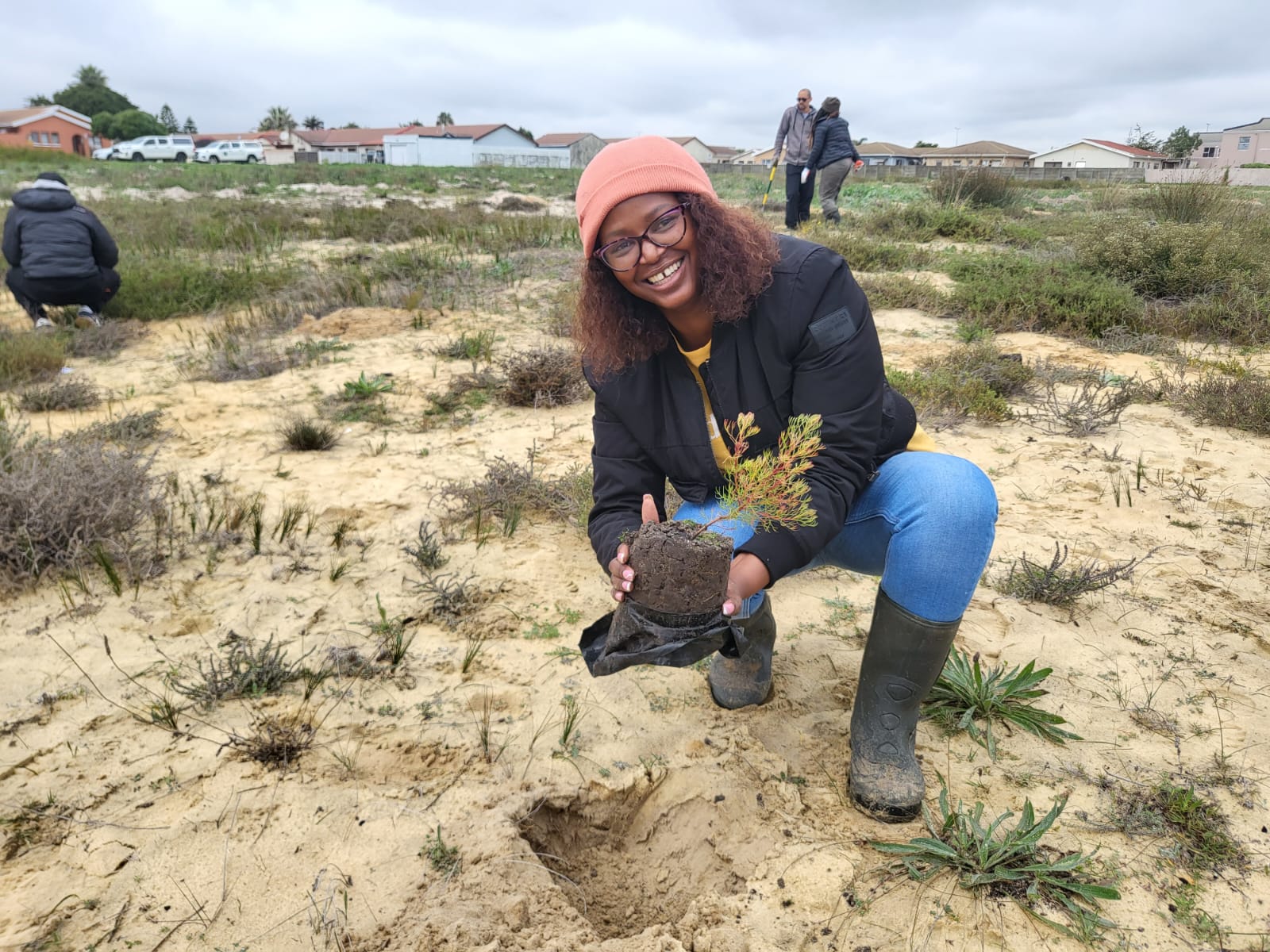I have always believed that if a majority of the privileged and elite class were more reflective, accountable and real with themselves, real with seeing things as they are, we would have a different world, a better world.
Greta Francesca Iori is a wildlife crime and conservation adviser to various African Governments, International Organisations and NGOs.
She stands firm in the belief that we need to move away from dominant and often ineffective conservation structures and instead cultivate scalable systems which dismantle deeply engrained forms of spatial injustice for both people and wildlife.
She shares her story with Damaris Agweyu.

Greta, if there was one thing in this world that you had the power to change, what would it be?
I have always believed that if a majority of the privileged and elite class were more reflective, accountable, and real with themselves — real with seeing things as they are, we would have a different world, a better world. A world that isn't rooted in exploitation, oppression, shame, and hurting others, but rather one that is rooted in prioritising reconciliation, generosity, belonging, forgiveness, and boundless solidarity.
Simply operating from a place of compassion and love would be a great start. If we all did this, we would treat the people we disagree with differently. We would be kinder and more understanding. We would agree to disagree and continue engaging. We would be solution-oriented. We tend to do that only with people we love, not with those we don't know on an intimate level. Instead, we come in with our armour and polarise each other. Ultimately, this gets us nowhere because there are many blurry and complex layers even within the lines of "right" and "wrong". In order to truly heal, we have to honour things as they are, intentionally and consistently choosing to make them better and choosing to come together.
So instead of being so damning, let's accept our differences and learn to compromise. I feel like it's a metaphor for everything because, as humans, we rarely ever consider the other entities living on this planet, those that don't have the systems to defend their rights. Exploitation and marginalisation transcend species. We need to recognise that it isn't all about us.
Your Twitter bio reads in part, "peace belongs to all living things", does that speak to what you are saying?
Yes. From a very young age, I've always felt this weird contention that we live in human governed systems. It seems unfair that even the way we protect wildlife is within the viewfinder of a human being. Shouldn't they have their own laws and systems of advocating? Or, at the very least, shouldn't science and policy be informed from the perspective and acknowledgement that we cannot fully comprehend other living systems in their entirety?
When I took my first sabbatical and travelled to India, I stumbled upon a Jain temple. I'd never heard about Jainism, was fascinated and started looking into it. One of the fundamental pillars of Jainism is that every living thing, including rivers, water, and land, have rights. And save for subsistence, every practising Jain should never harm another living thing knowingly– this changed everything for me.
Imagine if we all had that integral belief that every living thing deserved to be here, respected, and protected.
I believe that, deep down, all human beings seek two things: peace and love. And they are interlinked. When you are loved, you are at peace, and when you are at peace, you are loved. And so, I believe that peace belongs to all living things. It's a reminder to always show up with compassion and adaptability because you can only ever see something through your lived experiences, and in every space we occupy, whether human or nonhuman, we aren't always capable of seeing the complete picture.
How did you end up working in the human-wildlife conflict space?
My first exposure to conflict was recognising how little communities benefited from protected areas, national parks, and tourism in my home country. At the time (and still today), tourism in Ethiopia was generally elite. I came from a privileged family with the resources to travel around the country. A strong desire of both my parents to teach my brother and I the complex histories of our home essentially guided my curiosity.
I remember feeling unsettled and helpless at the extreme inequality and powerlessness of the people who held those spaces and landscapes. I realised that wildlife, too, had no voice. It was very much human to human conflict about the spaces. At the time, the "stakeholders" were government, elite Ethiopians, some foreigners and communities that were disempowered and marginalised. Then the consequences of the decisions made by those stakeholders would impact the wildlife or landscapes.
So, as I started working in human-wildlife conflict. I initially specialised in the illegal wildlife trade because although it was a violent conflict, it was niche and somewhat manageable. I knew where to start: the extraction of wildlife for the pure purpose of serving humans in a very faraway place. My focus was never on the poachers because it doesn't take long to understand how organised criminals and exploitation works. I was so upset about these global, largely foreign syndicates that had immense power over our landscapes, leaders, and wealth as Africans. But I was even more appalled at how the international conservation community, instead of tackling the deeply complex root causes of the illegal wildlife trade, built a rhetoric blaming local African "poachers".
I felt like the only way I would change this was to get to know the ins and outs of how this was happening. I often endangered my life, going undercover, but knowing that there was no other way because it's a very powerful space. Influential people don't like you calling them out, certainly not when it threatens a business valued at over 20 billion dollars a year.
After five years of doing this, I got exhausted. For every step forward, we would have ten steps back. I realised that even the illegal wildlife trade and human-wildlife conflict were symptoms of a more extensive broken system, one that was built to serve the very few and hurt the many. It's a constant tango between people driving resource exploitation and those who depend on resource exploitation to survive in the interim. It looks at far broader things than conservation — land, development, inequality, racism, social and cultural structures.
I felt that if I was going to endanger my life, let me pierce it where it hurts. Let me say the things that people dare not say because they directly threaten their existence or privilege.
Why did you get into a space that would pose a significant risk to your life?
Many of the women in my family, the women who raised me, have had extremely challenging upbringings. They gave up a lot to afford us a life of "ease". Watching me go out of my way to change a system they truly believed could never change would often lead to many disagreements. Although my mother is very proud of me, she also tries to remind me that I shouldn't just absorb the world's burdens because life can become very miserable that way.
She is, undoubtedly, the strongest woman I know.
She lost both her parents at the age of nine. They left behind five children, and my mum, being the eldest, had to take care of her siblings. She may not have known it, but she carried a lot of trauma from that reality; nevertheless, she was never resentful. I have seen how much she sacrificed herself to give me, my brother, and the extended family the privilege and wealth of life that we enjoy today.
If our everyday struggles in this space mean that one more person can live with a little more ease, more rights, a louder voice, and a seat at the table, then the sacrifices made by my mother, the strong women in my ancestry, and marginalised people's pain and suffering will not be in vain.
I have spent time in some of the poorest parts of my country, where people are genuinely struggling for resources, and I am the most privileged person in their midst. Still, not one person would eat or drink without offering it to me first.
We've been robbed of this sacred communal way of living by greedy people and systems that make you believe that you are not worthy unless you are driven by money— something is deeply wrong.
And I think about leaving it all behind and going back to just living with ease because I could at any moment. Still, something in me always pulls me back, saying, you were put on this earth at this specific time to do something about it. That is the only reason you've gone on these immense journeys.
The most radical thing we can do is reconnect to those ancestral roots that we all belong to to some degree. We are just human beings seeking love, peace, and joy. We will find that in nothing that humanity has created but in everything that already exists within ourselves — community, the land, caring for each other, slower paces, nurturing rather than competitive systems, unconditional, deep, boundless love. I like to call it a solidarity-based system.
What have you struggled with most in life?
My ability to show up and not be afraid to take up space. I'm an extrovert, but there's a frightened little girl inside me. I know I'm a powerful individual, but I've shrunk myself in specific spaces. A lot of it has to do with my upbringing. I come from a culture where you can't be vulnerable. You can't show weakness. You can't share difficult situations. You don't try and bring about justice. You move on. And you thank God that it wasn't worse.
In the beginning, I never had a woman that took me under her wing in this space. Many women, mainly because they wanted to protect me, told me I shouldn't be doing this. So I realised that if I wanted to create the impact, I had to keep my head down and do the work without anyone talking about it. I would drip-feed aspects on social media to the outside world because we are taught to believe that we need to do that for validation. But the truth is, so little of what I've worked on in the past decade is known in the public domain. In some way, I like to believe that's why we were so impactful because it was all about focusing on the impact rather than showcasing it to the world.
My fear of taking space and cracking open changed when I met my husband. He helped me understand that I could be more powerful if I broke down my walls. He single-handedly removed shields around my heart and fears I didn't know I even had. I'm realising now that my story matters because I am the woman I was looking for when I was younger. I need to be that woman for others.
What's your definition of a strong woman?
I think a strong woman is consistently vulnerable because that is our strength. Vulnerability and honesty are our ability to give love, show compassion, hold space for those we disagree with, and nurture those we love and even those we don't know. And that doesn't come from a place of armour, division, pettiness and dichotomies. It comes from a place of saying, I feel you. Let me carry the pain with you because I know what you're going through. You are not alone.
Some of the strongest women I've ever met haven't achieved the cookie-cutter definition of success. They have been able to break down their walls and normalise the challenges of this world. They carry the burdens of others. They journey slowly. They don't try to rush through emotions. They don't try to understand everything. They don't create divisions. They always uplift. They are everything we're told not to be. But the ability to be your authentic self in every space, especially when you're not doing so great, and to create an avenue for others to understand that is what it means to be human.
I'm very much of the view that we need to allow for adaptation as we journey through our lives. We need to be able to say; you know what, I was this person for ten years, and now I want to be this person. I feel that to be strong is to be completely flexible and authentically you.
What have you learned about life?
Often, we get consumed with how big and systemic everything is and how important we think we are. We lose sight of the fact that we are part of a mosaic, and our time will be up in the blink of an eye.
I have to remind myself not to lose perspective. To remember that each day I put off what I genuinely want for myself; that's a day I am taking a gamble on because I don't know if I'm going to be here tomorrow.
And I have to remind myself to foster as much rest as ambition; centre them both. Many people stopped "chasing" during the global pandemic. They prioritised calling people. They journeyed slowly and lived intuitively. Because the point finally hit home: our lives are not certain. But there doesn't need to be an existential crisis to remind us that nothing is a given.
Last year I interviewed both my parents with all my burning questions. It was one of the most beautiful moments of my existence because I got to know them not as my parents but as human beings.
The one thing they both emphasised is they didn't have the pressure of constantly being connected and being available.
"Everything was slower", they said. "The alarming reality that is manifesting in our society now is that everything is instant. So you don't appreciate anything. We celebrated moments. We raised our kids. We made sure to have collective time within the community".
This goes back to returning to our essential roots, journeying slowly, intentionally, and peacefully.
Did you go through something that made you pursue this profoundly reflective spiritual journey, or have you always been this way?
I believe I was born with it. And the fact that I accepted it came from my character. I have always wanted to understand the deeper questions of our existence.
From the age of five, I was very aware that my parents could die. And I was disturbed by it. And then the experiences of losing a somewhat sister to me at the age of 11 threw me into the deep end of the spiritual world. I started understanding that there is something within us that is bigger than what we are told in religious school. There is a consciousness to which some people are deeply connected; others resist it.
When I was 14, I asked my parents to go to Egypt because I felt called to visit its ancient civilisations; I needed to understand them on a deeper level.
And ever since, I've sought out many journeys to better understand the inner turbulent world. This has led me to ask the bigger questions: Why are we here? Why do we struggle? Why do we love? Why do we grieve? Why do we die? Why do we live? Why do some have a good life and not others?
It's been 20 years of constantly asking questions, searching inwards, removing all the labels of identity, and simply connecting as a human being to the spiritual and natural worlds. I love to engage in those spaces where we don't have answers. It's humbling and teaches me a lot about how to show up in this world.
***
This interview is part of a series profiling the stories of the 2021 WE Africa leadership programme fellows, African women in the environmental conservation sector who are showing up with a strong back, soft front, and wild heart.





